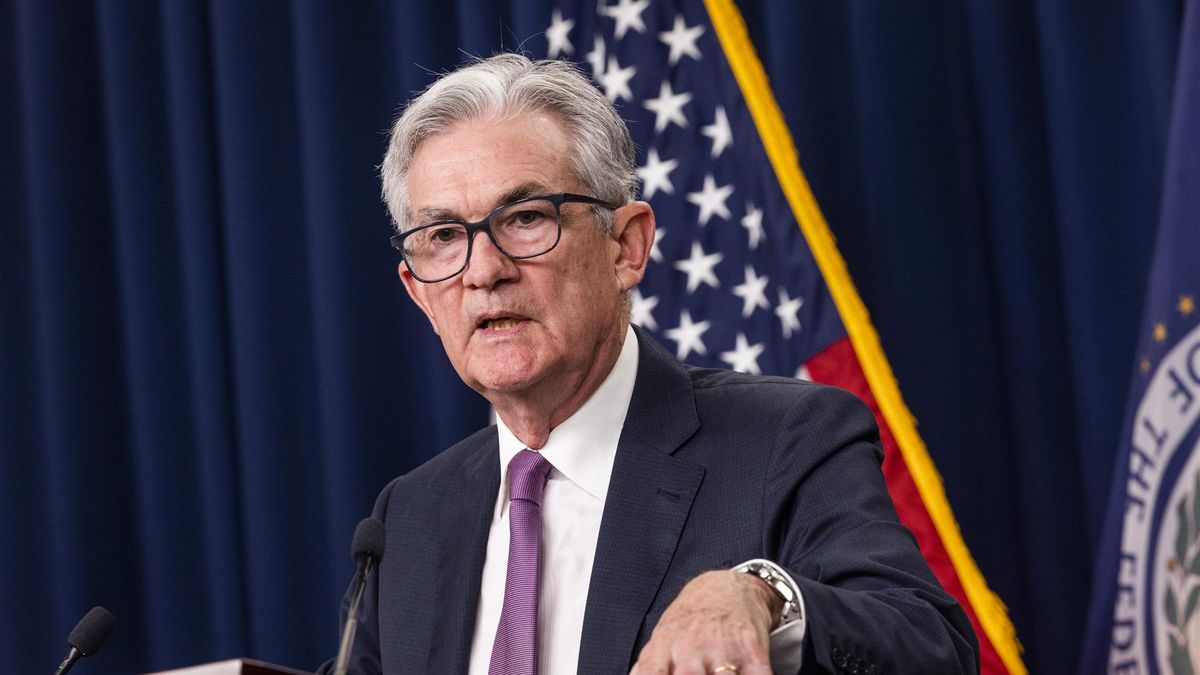The United States Federal Reserve (fed) resolved this Wednesday raise the interest rate by 25 basis points of reference of the US central bank to the range from 5.00% to 5.25%the highest since 2007, in an attempt to curb inflation.
Fed Chairman, Jerome Powelltold a press conference that “the focus remains on promoting maximum employment and stable prices” for Americans, since they understand “the difficulties that high inflation is causing,” and are “committed to reducing it until it reaches the target range of 2% per year“.
From Wall Street They rule out that the agency adjusts the rate again for the coming months, and estimate that it will remain at this level until the end of the year. However, there is no guarantee that the Fed will keep rates stable at its next meeting in June, since its monetary policy statement stated that “inflation remains high“.
In this line, the Fed assures that they will monitor the results and the real impact of the successive increases, to assess whether a new tightening is necessary to alleviate inflation in a US economy that is beginning to show signs of slowdown in growth.
According to ryan sweetchief economist of Oxford Economics“monetary tightening and recent tensions in the banking system will lead to a mild recessionalthough stronger than we had anticipated.”
The repercussions generated by the Fed rate hike in Uruguay
The Economist aldo mottoassured on a Twitter account that “with modest growth and 2-year inflation expectations close to 2%, the Taylor rule anticipates a Fed rate heading for 4% by the last quarter“, and highlighted the words of Powell, who indicated that there will be “modest growth, not recession.”
https://twitter.com/AldoLema_uy/status/1653851928764497921
These words of Powell’s did not go unnoticed in the account of the stockbroker Gastón Bengoecheawhere he was quoted as saying that “it’s more likely that we don’t have a recession (in the United States) than if we do.”
Uruguay charted its own path in terms of monetary policy
He Central Bank of Uruguay (BCU) traced a path that moved away from the contractive monetary policy at the global level after the last meeting of the Monetary Policy Committee (Copom) on April 19, when it surprised with a drop in the interest rate while the market expected its freezing. Currently, the monetary policy rate (MPR) Uruguay stands at 11.25% even though inflationary expectations rose and are far from the target of 3-6%.
Uruguayan titles show stability and come from a week with significant increases after the decision of the rating agency Standard & Poor’s to raise Uruguay’s credit rating to BBB+, the highest in the country’s history and two notches above investment grade.
Bonds maturing in 2024 and 2025 increased by 0.15% and 0.14%, respectively; while those maturing in 2027 and 2031 increased 0.75%, equally, according to data from AFAP Republic.
In turn, the 2033 bonds appreciated by 0.90%; he Bond Indexed to Climate Indicators (BIIC) to 2034, 1.14%; and bonds for 2036, 1.39%. Meanwhile, those with maturities in 2045, 2050 and 2055 increased by 1.9%, 1.73% and 1.77%, respectively. All the increases occurred with respect to the third week of April.
How will the Fed’s decision affect emerging markets?
If the Fed decides to pause the increases in the reference interest rate, it could have a positive effect for the emerging marketswhich were affected by the global risk aversion cycle unleashed by the Fed’s tightening monetary policy.
“Thinking more about 2024, once the inflationary phenomenon in the United States is under control, it will be key to identify the Fed’s positions and perspectives regarding the duration of the high level of interest rates, since as it begins to signs of decline, surely The biggest beneficiaries, due to their characteristics and eventual valuations, are the financial assets of emerging countries”, pointed to scope.com, Lucas Biagetti, financial analyst at Quaestus Advisory.
And he added: “The effects of a potential recession in the United States, the degree of its impact and the ability of companies to respond to the phenomenon, as well as obviously the inherent issues of each particular economy of these enter into the equation. countries, which is extremely complex”.
Source: Ambito




